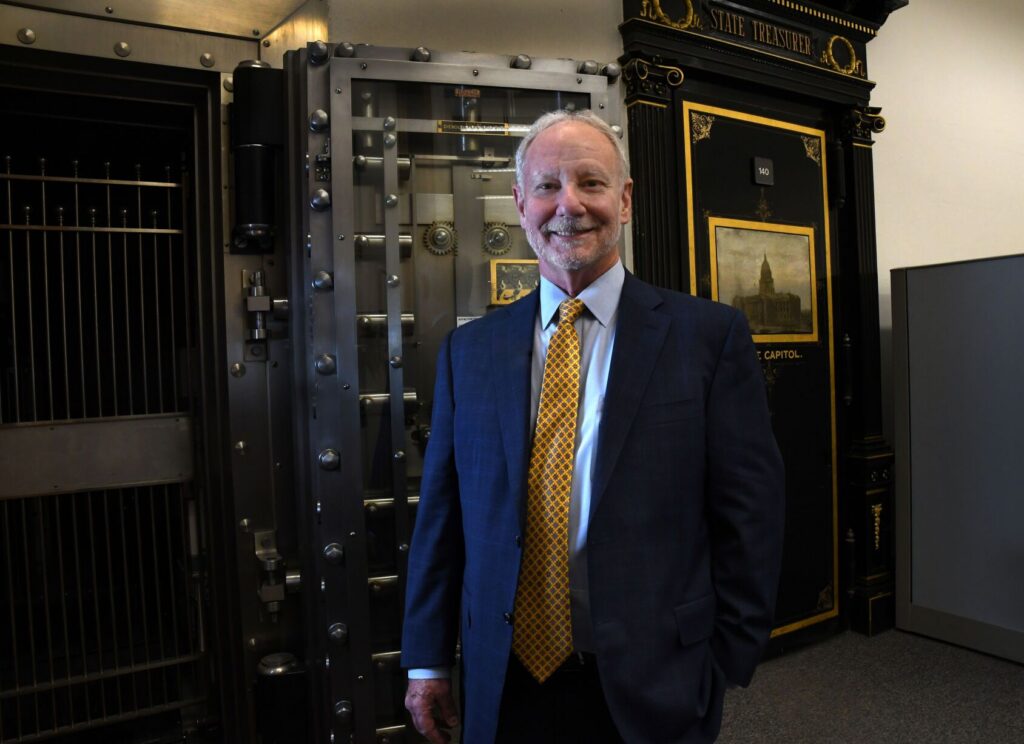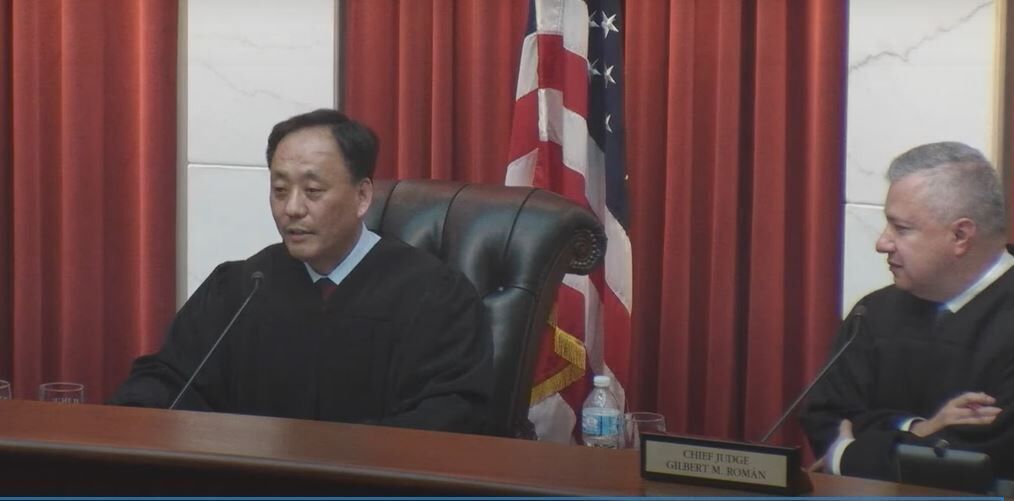By 4-3, state Supreme Court blocks probable cause hearings for class of defendants

Even though all parties agreed John Robert Hacke will receive a mandatory prison sentence if convicted of identity theft, a majority of the Colorado Supreme Court decided on Monday that Hacke is not eligible for a hearing where he can challenge prosecutors’ evidence of probable cause.
By 4-3, the Supreme Court found the requirement in state law that defendants facing “mandatory sentencing” receive a preliminary hearing did not apply to Hacke.
Justice Carlos A. Samour Jr., writing for the majority, noted that Hacke’s alleged felony does not require a prison sentence by itself, but, rather, it was Hacke’s prior conviction that would trigger mandatory prison this time around.
“That Hacke’s criminal history will subject him to mandatory sentencing in the event of a conviction is of no moment,” Samour wrote in the Jan. 30 opinion.
Justice William W. Hood III disagreed. While prosecutors did not specifically charge Hacke under the legal provision requiring a mandatory prison sentence, it was undisputed his alleged felony carries with it mandatory incarceration.
“And here, identity theft is ‘the felony’ that mandates imprisonment for a class of offenders that includes Hacke,” Hood wrote for himself and Justices Monica M. Márquez and Richard L. Gabriel.
Colorado law provides for preliminary hearings, whose purpose is to screen out cases where prosecutors do not have probable cause to believe the defendant committed a crime. The legislature has given the right to a preliminary hearing to those who are accused of serious felonies.
However, the right also extends to defendants charged with class 4, 5 or 6 felonies whenever the “felony requires mandatory sentencing.”
Prosecutors in Pueblo County charged Hacke with one count of identity theft, which is a class 4 felony. The charging document did not mention the portion of the identity theft law that requires a prison sentence for anyone convicted of a second offense, but prosecutors acknowledged Hacke had a prior identity theft conviction that would now trigger mandatory sentencing.
At a June 2022 hearing, Hacke’s attorney asked District Court Judge Amiel Markenson to set a preliminary hearing to determine whether probable cause existed for Hacke’s alleged offense.
“I would argue, judge, that because it is mandatory prison, he should be entitled to a preliminary hearing in this case,” said Deputy State Public Defender Lauren T. Swan.
The prosecutor confessed he was “thoroughly confused” about whether the law would allow for a preliminary hearing, and Markenson said Hacke may be entitled to one. He set another hearing for the following month.
At the second hearing, Markenson was willing to proceed with a preliminary hearing, but the defense noted the victim was not present. Appearing reluctant to issue a warrant for the victim, Markenson then volunteered, “Frankly, I don’t know that (Hacke is) even preliminary hearing eligible.”
He elaborated that the legal provision requiring prison for a second offense was a sentence enhancer, and not part of the charged felony itself. Therefore, the charge of identity theft did not fit under the category of offenses entitled to a preliminary hearing.
“Frankly, it would be nice to have something on point from a higher court telling me yes or no,” Markenson added in denying Hacke’s request for a probable cause hearing.
Hacke appealed directly to the Supreme Court, which agreed to hear the case after determining Colorado’s appellate courts had never answered whether a defendant is entitled to a probable cause hearing if the charged offense does not require prison but, practically speaking, he would be incarcerated if convicted.
Swan argued her client faced mandatory incarceration solely because of the pending felony charge, meaning he had the right to a preliminary hearing. The Colorado Attorney General’s Office countered that the trigger for a mandatory prison sentence was “not properly part of the charging document.” Therefore, Hacke was not charged with an offense resulting in mandatory incarceration.
The Supreme Court’s majority agreed with the government.
“The reason Hacke faces mandatory sentencing isn’t because the felony with which he is charged requires mandatory sentencing; it’s because a circumstance in his individual background (his criminal history), when combined with a conviction for the felony with which he is charged (class 4 felony identity theft), requires mandatory sentencing,” wrote Samour.
If the legislature had intended to grant probable cause hearings under those circumstances, Samour elaborated, it would have extended the right to all people charged with a class 4 felony who face mandatory sentencing, instead of focusing on whether the felony itself requires mandatory incarceration.
Hood believed the solution was “more straightforward”: the term “felony,” in his view, meant any legal provisions that would dictate whether a preliminary hearing is necessary. Under that definition, the mandatory sentence for a second identify theft offense would be included.
“Hacke wouldn’t be subject to a mandatory prison sentence if it weren’t for the offense-specific sentence enhancer that the legislature carved out for identity theft,” Hood wrote for the dissenting justices.
Tristan Gorman, policy director for the Colorado Criminal Defense Bar, said she was puzzled by the move to limit eligibility for probable cause hearings, given how uncommon they are in the first place. She noted the decision will have repercussions beyond the offense of identity theft.
“There are a lot of statutes where the legislature has made a second or subsequent offense, or a third or subsequent offense, either a different offense classification or subject to enhanced sentencing,” Gorman said. “That’s not unusual in our criminal code.”
The case is People v. Hacke.














